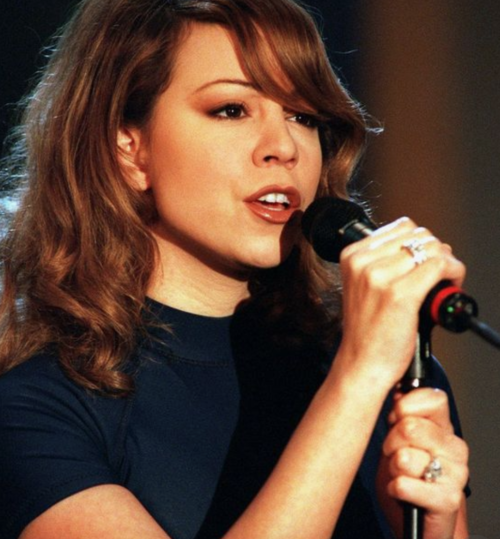Immortalized to the true extent of all its cheesy glory in 2001’s Bridget Jones’ Diary with Bridget (Renee Zellweger) herself karaokeing a truly atrocious rendition at an office party, Mariah Carey’s 1994 single, “Without You,” from Music Box (released in 1993) was in the true spirit of what a cover should be, in that she made it entirely her own based off Harry Nilsson’s single (who had, in turn, based it off of Badfinger’s original). Happening to hear the track, which had always moved her as a child (as children of Long Island tend to be easily moved by such schmaltz), in a restaurant during the recording of Music Box, Carey decided she had to do her own version, that it was surefire hit material.
For once trusting her own instincts instead of Tommy Mottola’s, her intuition paid off, and the song rose to the top of the charts upon its January ’94 release. Earnestly insisting to the object of affection in her mind’s eye, “I can’t live if living is without you/I can’t live, I can’t give anymore,” Carey’s voice contains within it the sort of ardent and sincere expression typically reserved solely for Oscar-worthy performances (well, Oscar-worthy before they tried to make that whole “popular movie” category happen). Her impassioned delivery of the vocals, “No, I can’t forget tomorrow when I think of all my sorrow/When I had you there but then I let you go,” is built upon in her latest single to follow “GTFO,” once again centered around the drama that unfolded during the filming of Mariah’s World, as she was forced to make a fairly obvious decision between billionaire James Packer and longtime backup dancer Bryan Tanaka.
Speaking of herself in the third person (as divas are wont to do), Carey sings on “With You,” “There were vows, she was bound to take ’em/She was full of such trepidation there in front of the whole damn nation” (that’s a little hyperbolic as, in truth, only older gay gentlemen and myself were watching Mariah’s World). Slightly less needy than spouting the false words of men (Pete Ham and Tom Evans, specifically), Carey tries to keep her edge in speaking on romance by name checking Usher’s Confessions album (though, unfortunately for her, without actually attaching Usher’s name to it in the song, it sounds more like her worst nightmare: a Madonna reference).
And yet, there’s nothing all that romantic about being so self-referential, with Carey seeming to get off more on Tanaka’s worshipful love of her (which, as Katharine Hepburn in The Philadelphia Story taught us, is never the kind a woman wants in the long run) as she alludes to her past work with, “He said, ‘Yo, I’ve been lovin’ you so long/Ever since that Bone Thugs song/You ain’t gotta break down, you’re too strong.'”
To boot, “With You” jumps the shark more than a few times when Carey says, “Damn I fucks with you.” Chalk it up to the DJ Mustard (true first name Dijon, naturally, and longtime collaborator of YG and Ty Dolla $ign) production and Carey wanting to keep it “fresh.” Alas, despite the maudlinness of “Without You,” it easily manages to usurp “With You” in the face of not even being original material pulled from Carey’s own experience. So while she might have attempted to upgrade to a tone less evocative of such clinginess, maybe, like Beyoncé, Carey is better off as a mouthpiece for other songwriters so that we don’t run into such cringeworthy-for-the-wrong-reason lines as, “And ooh, shots of Remy/Playing Confessions, and our bodies blendin'”–arguably the tackiest scene conjured by a song in 2018.
Two song titles almost as common as the go-to pop rhyme scheme, one is perhaps better off listening to Lana Del Rey’s “Without You” from Born to Die, or even still, Jessica Simpson’s “With You” from In This Skin. “Could do ‘Without You,'” is in fact, a terse review that might be used to describe Carey’s “With You.”
https://www.youtube.com/watch?v=QSjm-Sdbohk



















